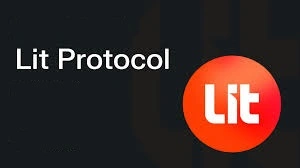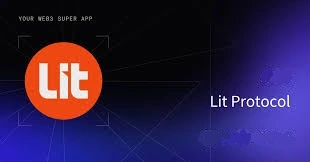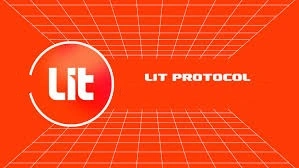Lit Protocol (LITKEY): Decentralized Data Privacy and Access Control
Table of Contents

In an increasingly data-driven world, ensuring privacy and security for decentralized applications (dApps) is more important than ever. Enter Lit Protocol (LITKEY), a cutting-edge solution designed to provide secure data privacy and access control for developers building decentralized applications. Lit Protocol enables app developers to integrate privacy directly into their smart contracts, giving them full control over who can access the data and under what conditions.
By combining blockchain technology with decentralized key management, Lit Protocol ensures that only authorized users have access to sensitive information. With a vision to empower developers and users alike, LITKEY is redefining how privacy is handled in the Web3 space. In this article, we’ll dive into how Lit Protocol works, its unique features, and how it’s shaping the future of secure and private Web3 applications.
For more insights and updates on the latest trends in crypto, be sure to check out our Nifty Finances platform, which is your gateway to smarter financial decisions in the digital economy.

What is Lit Protocol (LITKEY)?
In the rapidly evolving Web3 ecosystem, decentralized applications (dApps) are transforming industries, enabling users to interact with services and platforms without relying on traditional intermediaries. But while Web3 offers enhanced transparency and user autonomy, it also presents new challenges, particularly around data privacy and access control. That’s where Lit Protocol (LITKEY) comes in.
LITKEY is an innovative decentralized access control solution designed to give developers the tools to create private, secure, and permissioned decentralized applications. At its core, LITKEY empowers developers to build Web3 applications that protect user data and control who can access specific resources, making it a crucial component for the next generation of private decentralized services.
Lit Protocol’s Mission in the Web3 Ecosystem
Lit Protocol’s mission is to bring privacy and control to the Web3 world, enabling decentralized applications to operate securely without compromising on user confidentiality or data access. By providing a decentralized way to manage and enforce access to sensitive data, LITKEY supports developers in building secure, privacy-preserving solutions that are compatible with the decentralized nature of Web3.
As more dApps are being built across industries like finance, healthcare, and supply chains, the need for secure and private interactions becomes increasingly important. LITKEY solves this problem by allowing private data to be stored and accessed securely while ensuring that users remain in control of their personal information.
How Lit Protocol Empowers Developers to Build Private Decentralized Applications
Developers face a unique challenge when building decentralized applications: while Web3 offers trustlessness and transparency, it can also expose sensitive user data. Lit Protocol gives developers the ability to create private, permissioned dApps by integrating secure access control directly into their applications.
Through the use of cryptographic keys and decentralized networks, LITKEY enables developers to specify who can access data and under what conditions. This means that user data is encrypted and stored on-chain, with access only granted to authorized parties. This empowers developers to design solutions where data privacy is ensured while still maintaining the decentralized ethos of Web3.
Moreover, Lit Protocol offers a simple API that can be integrated with a wide range of Web3 platforms, making it easy for developers to adopt and implement.
The Role of LITKEY in Enabling Data Access and Privacy
At the heart of Lit Protocol is LITKEY, the native token that plays a pivotal role in managing data access permissions. LITKEY is used to pay for access rights, incentivize network participants, and ensure that only authorized users can access specific data or resources within a decentralized application.
When developers create private access control policies, they use LITKEY to define how and when specific users or parties can access the encrypted data. This ensures that data privacy is maintained, while still offering a seamless user experience within decentralized ecosystems.
Benefits of Decentralized Access Control in Web3
The integration of decentralized access control into Web3 applications offers several key benefits:
- Enhanced Privacy: With Lit Protocol, sensitive data remains under the user’s control, ensuring that only authorized individuals can access it.
- Security: Decentralized access control reduces the risk of single points of failure, making it more resilient against cyberattacks and data breaches.
- Permissioned Sharing: Developers can create specific access controls, allowing users to share data only with trusted parties and ensuring privacy without compromising the benefits of decentralization.
- Compliance: Lit Protocol helps developers comply with data privacy regulations like GDPR, as users maintain ownership of their data and control who can access it.
- Scalability: LITKEY supports scalable access management, enabling developers to build complex dApps that can handle a large number of users and secure data access permissions.

How Lit Protocol Works — Ensuring Privacy and Security
As the Web3 ecosystem grows, maintaining privacy and security while preserving decentralization remains a major challenge. Lit Protocol provides a solution to this dilemma by enabling decentralized key management, secure data sharing, and privacy-preserving smart contracts. With these features, LITKEY empowers developers to build decentralized applications (dApps) that offer both privacy and trustless control, making data sharing secure and permissioned.
Let’s explore how Lit Protocol works and how it enhances privacy and security in the decentralized world.
Decentralized Key Management: Secure Data Access
At the heart of Lit Protocol’s security model is its decentralized key management system. In traditional systems, data access is often controlled through centralized servers and databases. However, in Web3, privacy is paramount, and Lit Protocol ensures that access to encrypted data is controlled through distributed key management rather than a single entity.
With LITKEY, the keys used to encrypt data are distributed across a decentralized network, making it nearly impossible for malicious actors to compromise the system. The platform’s infrastructure ensures that only authorized individuals or entities with the appropriate keys can decrypt and access the data.
Developers can specify conditions under which data can be accessed by users, ensuring that access remains tightly controlled. This level of distributed security prevents single points of failure and minimizes the risk of hacks, ensuring the highest level of data integrity and confidentiality.
Smart Contracts with Privacy: Private Data Control
Lit Protocol integrates seamlessly with smart contracts, enabling developers to create privacy-preserving decentralized applications. Smart contracts are self-executing contracts with the terms directly written into code. However, these contracts typically operate in a transparent manner, meaning anyone on the blockchain can see their contents.
Lit Protocol enhances the privacy of smart contracts by allowing data to remain encrypted and only accessible to specific parties under predefined conditions. By using Lit Protocol’s decentralized access control system, developers can enforce privacy policies directly within their smart contracts.
For instance, a contract might allow a user to access a private resource, but only if they hold a specific token or meet certain conditions. This ensures that sensitive information is only revealed to authorized parties while maintaining the trustless nature of the blockchain.
Secure Data Sharing: Authorized Data Sharing Between Users
Another important feature of LITKEY is its ability to facilitate secure data sharing. In a decentralized ecosystem, data sharing is often a necessity, whether it’s for collaboration, validation, or accessing services. However, ensuring that data is shared securely and with the right users is critical.
Lit Protocol allows data to be shared only between authorized users. With its decentralized access control, only those who meet specific access requirements (such as holding a token or being part of a permissioned group) can gain access to the encrypted data.
This enables developers to create applications where users can share data privately, whether it’s financial information, health records, or any other sensitive data, without the risk of exposure to unauthorized parties.
Access Control Mechanisms: Role-Based and Condition-Based Access to Encrypted Data
LITKEY also introduces flexible access control mechanisms, offering both role-based and condition-based access to encrypted data.
- Role-based access allows developers to define different levels of access for different users. For example, a user may have read-only access, while another user may have the ability to edit or manage the data.
- Condition-based access lets developers set custom conditions that must be met before data can be accessed. These conditions could be anything from the completion of a task to the holding of a specific token.
By combining both role-based and condition-based access, Lit Protocol provides a robust and flexible system for managing who can access data and under what circumstances.

How Lit Protocol Transforms Web3 Apps
In the world of Web3, privacy and security are crucial considerations for developers and users alike. Lit Protocol enables secure, private, and decentralized access control for decentralized applications (dApps), making it a transformative tool for Web3. By providing privacy-focused solutions, Lit Protocol opens the door to a wide array of innovative use cases that enhance both security and usability in decentralized ecosystems. Let’s explore how Lit Protocol is changing the game for Web3 applications.
Private Data Storage: Enabling Confidential Storage for Decentralized Applications
One of the most significant challenges in Web3 is how to handle private data securely. Traditional applications use centralized databases to store user data, but in Web3, privacy must be protected while still allowing for decentralized interactions. Lit Protocol allows for the confidential storage of sensitive data in decentralized applications.
By using decentralized key management and cryptographic encryption, Lit Protocol ensures that data is only accessible by those authorized to view it, while remaining encrypted and secure on the blockchain. This means that users can store private data in a decentralized manner without sacrificing privacy. For example, a user’s financial information, health data, or identity-related records can be stored securely, accessible only by those with the correct access permissions.
With this approach, developers can build applications that offer secure, private storage without relying on centralized servers or exposing sensitive data to the public blockchain.
Decentralized Identity: Protecting User Identity in Web3
In Web3, decentralized identity (DID) plays a crucial role in protecting users’ privacy. Traditional online services often require users to disclose personal details, leading to potential security risks or data leaks. With Lit Protocol, decentralized identity becomes more secure and user-centric.
Lit Protocol allows developers to create identity management systems where users can control their identity without relying on centralized identity providers. By using cryptographic keys and role-based access control, users can grant permission to access certain data or verify their identity only when necessary. This creates a trustless identity system that protects users’ privacy while still ensuring secure and verified interactions.
For example, a user might want to prove their age to access a specific service without revealing other personal details. Lit Protocol enables this private, verifiable identity management by securely managing what data is shared and with whom.
Secure File Sharing: Decentralized File Sharing with Secure Access Protocols
Lit Protocol excels at enabling secure, decentralized file sharing. In the Web3 ecosystem, file sharing often involves sensitive content that needs to be protected from unauthorized access. Lit Protocol addresses this issue by providing decentralized access control for file storage and sharing.
With Lit Protocol, developers can create permissioned access protocols for files, ensuring that only specific parties can view or interact with particular files. Whether it’s a private document, an encrypted media file, or a confidential report, Lit Protocol ensures that files are stored and shared securely.
This decentralized approach not only improves privacy but also eliminates the need for centralized file-sharing platforms. Users maintain control over their files and can share them only with trusted parties, without relying on third-party intermediaries.
dApp Development: Why Web3 Developers Should Adopt Lit Protocol for Enhanced Security
For Web3 developers, privacy and security are paramount concerns. As the Web3 space continues to grow, Lit Protocol offers a powerful solution to ensure that decentralized applications (dApps) maintain these essential values.
By integrating Lit Protocol, developers can add encrypted data storage, private smart contracts, and role-based access control to their dApps without needing to build complex security systems from scratch. Lit Protocol’s easy-to-use API and decentralized architecture allow developers to focus on creating innovative applications while ensuring that privacy and security are built into the core of their platforms.
Additionally, Lit Protocol enhances scalability by allowing developers to securely manage access to large volumes of data across multiple users, without worrying about centralized bottlenecks or the risks associated with traditional data storage systems.
Getting Started with Lit Protocol
As Web3 applications continue to grow, integrating privacy and security into your decentralized app (dApp) becomes critical. Lit Protocol provides developers with the tools to implement decentralized access control, ensuring privacy, encrypted data storage, and secure data sharing without compromising on the core principles of decentralization.
In this guide, we’ll walk you through the essential steps to get started with Lit Protocol and how to integrate it into your dApp seamlessly.
Step-by-Step Integration: How Developers Can Integrate Lit Protocol into Their dApps
Integrating Lit Protocol into your dApp is a straightforward process. Here’s how you can start:
- Create an Account: To begin, sign up at Lit Protocol to get access to the platform and its developer tools. Once signed up, you will be able to generate API keys and access the SDK.
- Choose Your Environment: Lit Protocol provides different integration paths depending on your stack and needs. Whether you’re building with JavaScript, Solidity, or other Web3 tools, Lit Protocol supports multiple frameworks and offers a variety of SDKs.
- Install the SDK: To start using Lit Protocol, you’ll need to install its SDK in your project. The installation is simple, and you can find detailed instructions for both JavaScript and TypeScript projects in the Lit Protocol developer documentation. For example, in a JavaScript environment, you can install the SDK using npm: bash
npm install @lit-protocol/sdk - Connect to the Lit Network: Once the SDK is installed, the next step is to connect to the Lit Protocol network. This will allow you to access the decentralized key management system and begin working with encrypted data. You’ll typically use Web3 wallets like MetaMask for this purpose.
SDK and API Usage: Tools Available for a Seamless Setup
Lit Protocol offers a comprehensive SDK and API to streamline integration into your dApp. These tools ensure that developers can easily interact with Lit Protocol’s decentralized access control system without having to build everything from scratch.
Here are a few key tools available to developers:
- Lit Protocol SDK: The SDK provides all the necessary utilities to implement access control, encrypted storage, and decentralized identity management. You can use it to encrypt data, manage access permissions, and integrate smart contracts with privacy features.
- Lit Protocol API: The API allows your dApp to communicate directly with the Lit Protocol network, enabling the creation of encrypted keys and secure data access on-chain. The API is perfect for integrating smart contract interactions or automating permission-based data sharing.
- Encryption & Decryption: Using the SDK, you can easily encrypt and decrypt sensitive user data, ensuring privacy while keeping the data decentralized.
Setting Up Access Control: How to Create and Manage User Permissions
A core feature of Lit Protocol is its ability to implement role-based and condition-based access control for decentralized data. Here’s how you can set up and manage permissions for your users:
- Define Access Control Rules: Using Lit Protocol’s SDK, define access control rules based on roles (e.g., admin, user, guest) or conditions (e.g., token ownership, task completion). You can create permission groups that dictate who can access which data or resources. Example of a role-based rule: javascript
onst role = "admin"; // Define user role const permissions = ["read", "write"]; // Permissions assigned to the role - Create Smart Contracts with Permissions: Lit Protocol seamlessly integrates with smart contracts. You can define access control rules in your smart contract logic, making it easier to handle private data access within your decentralized application.
- Manage User Permissions: Once the rules are defined, you can manage permissions dynamically. This includes adding or removing users from specific roles, adjusting conditions for access, or changing the resources users can interact with.
- Conditional Access: For added security, you can implement condition-based access, which grants or restricts data access based on certain criteria (e.g., the user must hold a specific token or meet other predefined conditions).
Lit Protocol (LITKEY) is revolutionizing the way developers build private and secure decentralized applications. With its decentralized key management, tokenized access control, and seamless integration into Web3, Lit Protocol is paving the way for a more secure and privacy-centric internet. Whether you’re a developer looking to integrate privacy into your dApp or a user seeking control over your data, Lit Protocol is the solution. Ready to take your Web3 app to the next level with privacy-first design? Start using Lit Protocol today and unlock the future of secure decentralized applications.